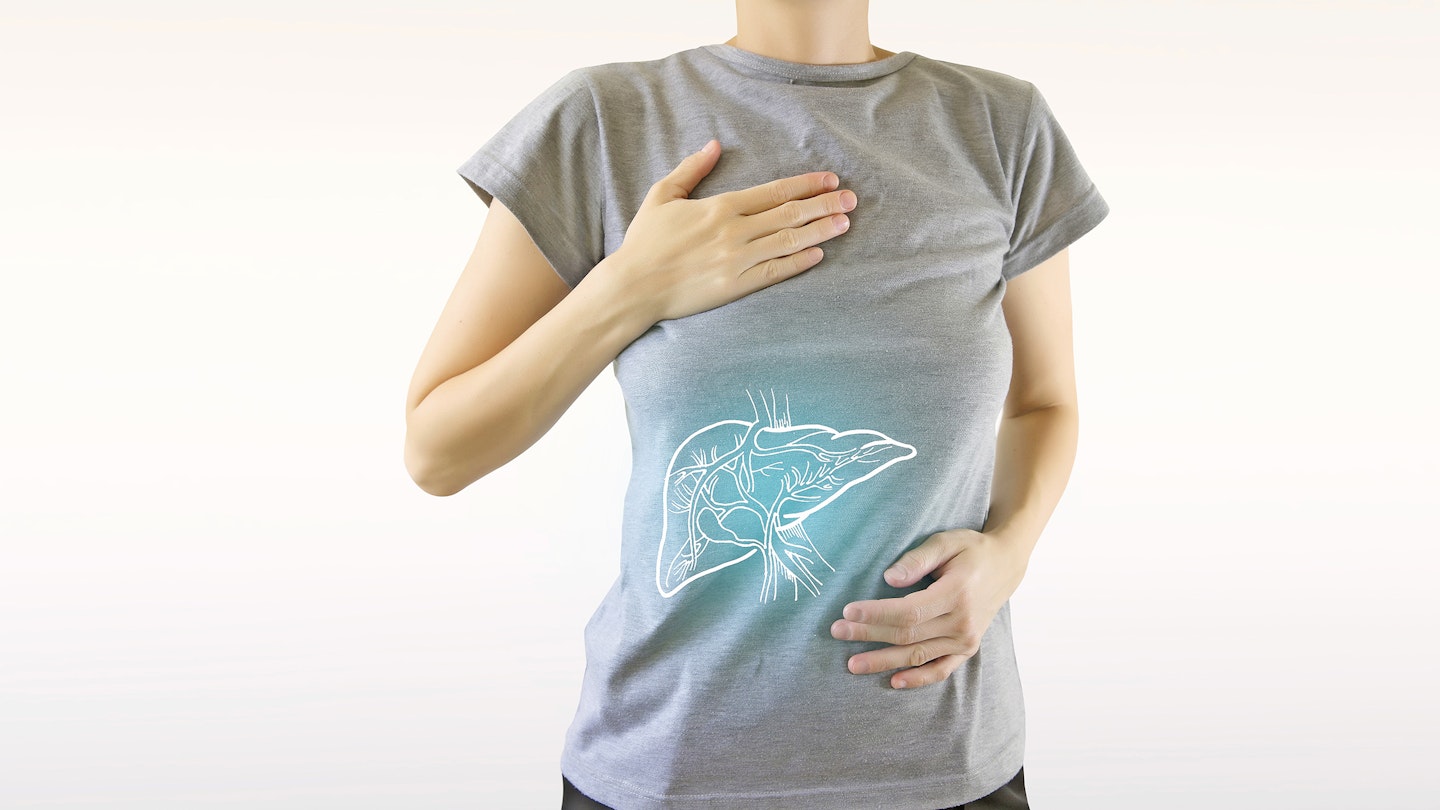It’s an organ of the body we rarely think about, but it works so hard and can be under strain — especially after menopause. Here’s how to help it
With over 500 different functions to perform regularly, our liver is one of our most important organs. Not only does it help us to make and store energy, but it also regulates our hormone levels and helps us store certain vitamins.
If we don’t look after the health of this vital organ, we can run into problems.
A new review has found that following the menopause, women are at higher risk of developing non-alcoholic fatty liver disease (NAFLD), a build-up of excess fat in our liver.
In fact, according to the NHS, it’s estimated that up to one in three people in the UK has the early stages of this, which, if it worsens, can become serious.
Vanessa Hebditch, Director of Policy and Communications at the British Liver Trust says: ‘The menopause is an ideal time to think about your liver health more closely. This is because the reduction in oestrogen production has an impact on our metabolism. Women might find it difficult to stay at a healthy weight, and being overweight is a key risk for developing liver disease.
‘Improving your liver health now can prevent damage occurring in the first place.’
Try these simple lifestyle changes and show your liver some love…
Drink more water
One vital role of our liver is to help clean our blood. But if we don’t drink enough water, our blood thickens and becomes harder to filter, putting our liver under increasing strain.
Vanessa says: ‘It’s important to drink plenty of water to assist your liver’s ability to flush out toxins. Aim to drink eight glasses a day. Sipping water regularly throughout the day, and especially before meals, is key to helping your liver stay healthy.’
Enjoy a coffee
Good news for coffee lovers! The British Liver Trust has confirmed that coffee is good
for liver health. Studies have found that drinking it regularly can lower the risk of liver conditions, protect us from developing liver disease and may even prevent liver cancer.
Go Mediterranean
We know a Mediterranean diet is good for our heart and bones, but according to research, it’s also good for our liver. The diet, rich in healthy unsaturated fats, helps decrease liver fat even more than a low-fat diet.
Vanessa says: ‘A Mediterranean diet with plenty of fruit and vegetables, beans, high-fibre grains and cereals is great for boosting liver health.’
Switch your plate
Vanessa says: ‘Obesity is one of the key factors behind the increase in NAFLD. However, losing 10 per cent of your body weight improves liver function, and in some cases, can reverse the scarring of the liver caused by this condition.’
Research suggests that people tend to eat the same size portion of food, no matter what’s on their plate. Therefore, one way to reduce the number of calories we eat is to simply swap what’s on it, replacing some carbs or fats on our plate with more fibre-rich vegetables or protein.
Ditch sugary drinks
According to research, drinking just two sugar-sweetened drinks each day can increase your risk of NAFLD, while reducing the amount of sugar in your diet can greatly reduce your liver fat.
Vanessa says: ‘Fizzy drinks are one of the biggest sources of sugar in the diet. Limiting them can really improve liver health.’
Work out
According to the NHS, all types of exercise can help improve NAFLD. Research suggests that resistance training and aerobic exercise may be particularly beneficial in helping to shift liver fat. So try to combine the two and do at least 150 minutes a week.
Cut down on drinking
If our liver is healthy, it should have little or no fat. But if we drink more alcohol than our liver can handle, fat can build up.
Vanessa says: ‘Aim to drink no more than 14 units a week – the equivalent of around five large glasses of wine or seven pints of beer — and make sure you have three consecutive days off alcohol each week.’
7 signs your liver is under strain
- Fatigue
- Loss of appetite
- Yellowing of skin
- Weakness
- Unexplained weight loss
- Itchy skin
- A dull or aching pain in the top right of the tummy
There are usually no symptoms of liver disease in the early stages. If you’re experiencing any of the above symptoms, speak to your GP.
You can assess your liver health at britishlivertrust.org.uk/screener
Edited by Stephanie May
